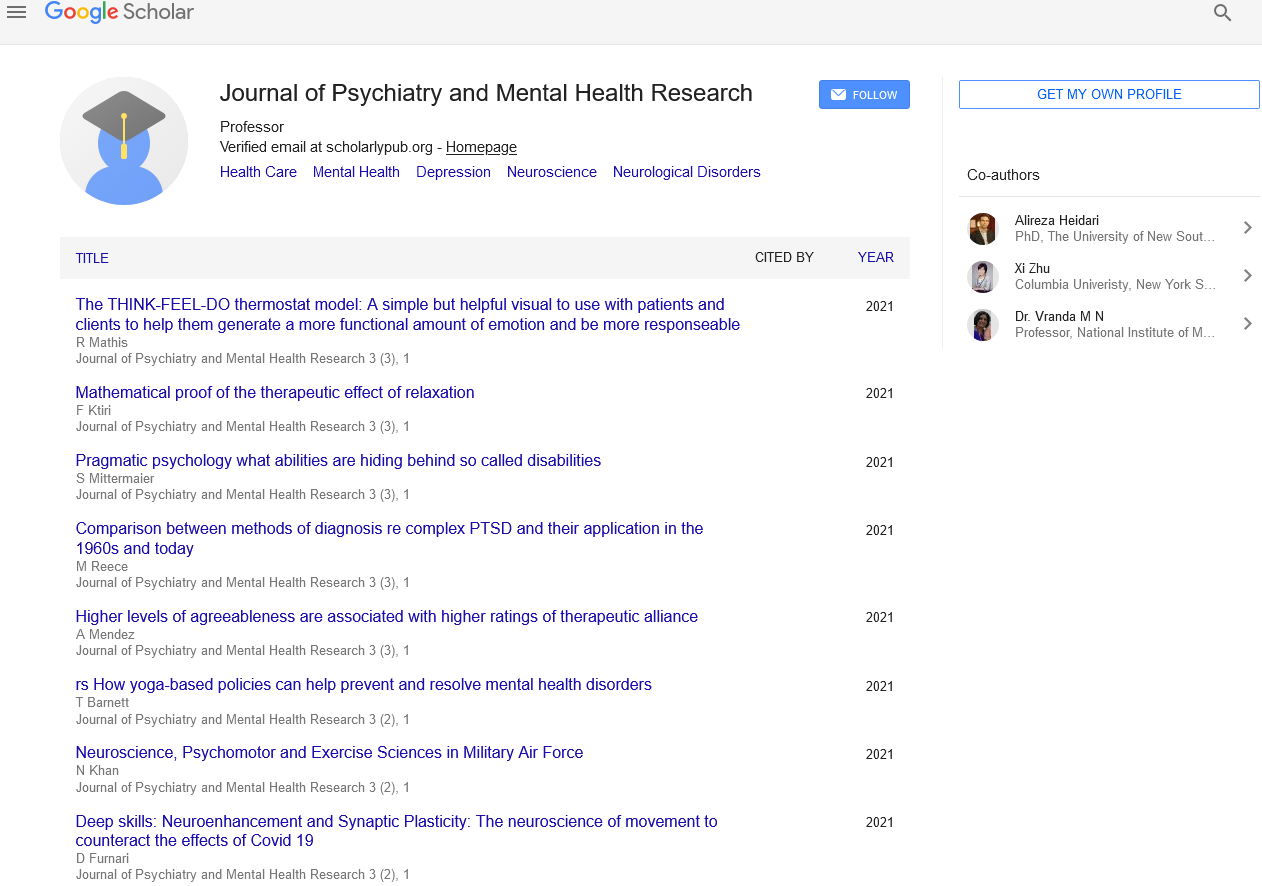
Sign up for email alert when new content gets added: Sign up
Abstract
Higher levels of agreeableness are associated with higher ratings of a therapeutic alliance
Author(s): Amanda MendezThe relationship between the therapeutic alliance and psychotherapy outcome has been well documented in the literature. The therapeutic alliance is considered a ???main curative component??? In the interpersonal process of therapy and is the foundation necessary for successful therapy outcomes across various orientations of psychotherapy. Still, far less research has examined the relationship between specific therapist personality characteristics and the quality of the therapeutic alliance. The current study was aimed at examining the relationship between several therapist personality traits and the therapeutic alliance. The study utilized the Working Alliance Inventory Short-Form (WAI-S) to measure the client-reported therapeutic alliance and the NEO-FFI to measure therapist personality. A one-way ANOVA was conducted to compare the relationship of agreeableness to the therapeutic alliance in groups of highly rated, average rated and low rated working alliance. Therapists were grouped by the quality of their working alliance score and the scoring profile associated with each factor. On the NEOFFI, agreeableness is divided into levels of low (T=35-44), average (T=45-55), high (T=56-65) and very high (T>65). Those who scored in the high range (T>56) of agreeableness demonstrate the highest levels of warmth, empathy, honesty and trustworthiness. Results indicated that agreeableness was found to be significantly related to the quality of the therapeutic alliance (F[2, 39]=7.09, p<0.00). Overall, higher levels of agreeableness were associated with higher ratings of therapeutic alliance, as well as the highest level of participation in the study. These findings suggest that therapist agreeableness is one important ingredient in strengthening the therapeutic alliance and reducing premature dropout. These findings also suggest the importance of therapists better understanding their degree of agreeableness and, if necessary, working to develop greater agreeableness for the purpose of strengthening their therapeutic alliances with patients.




